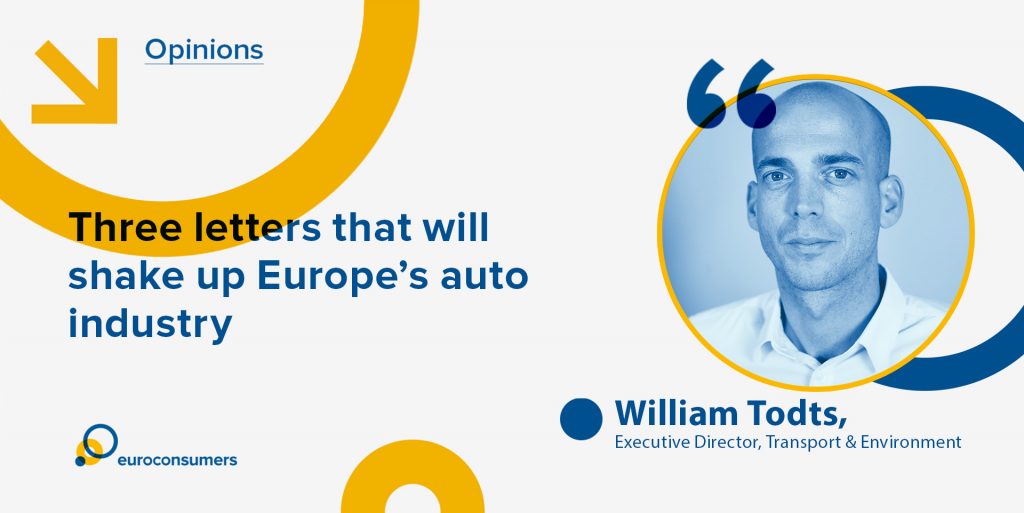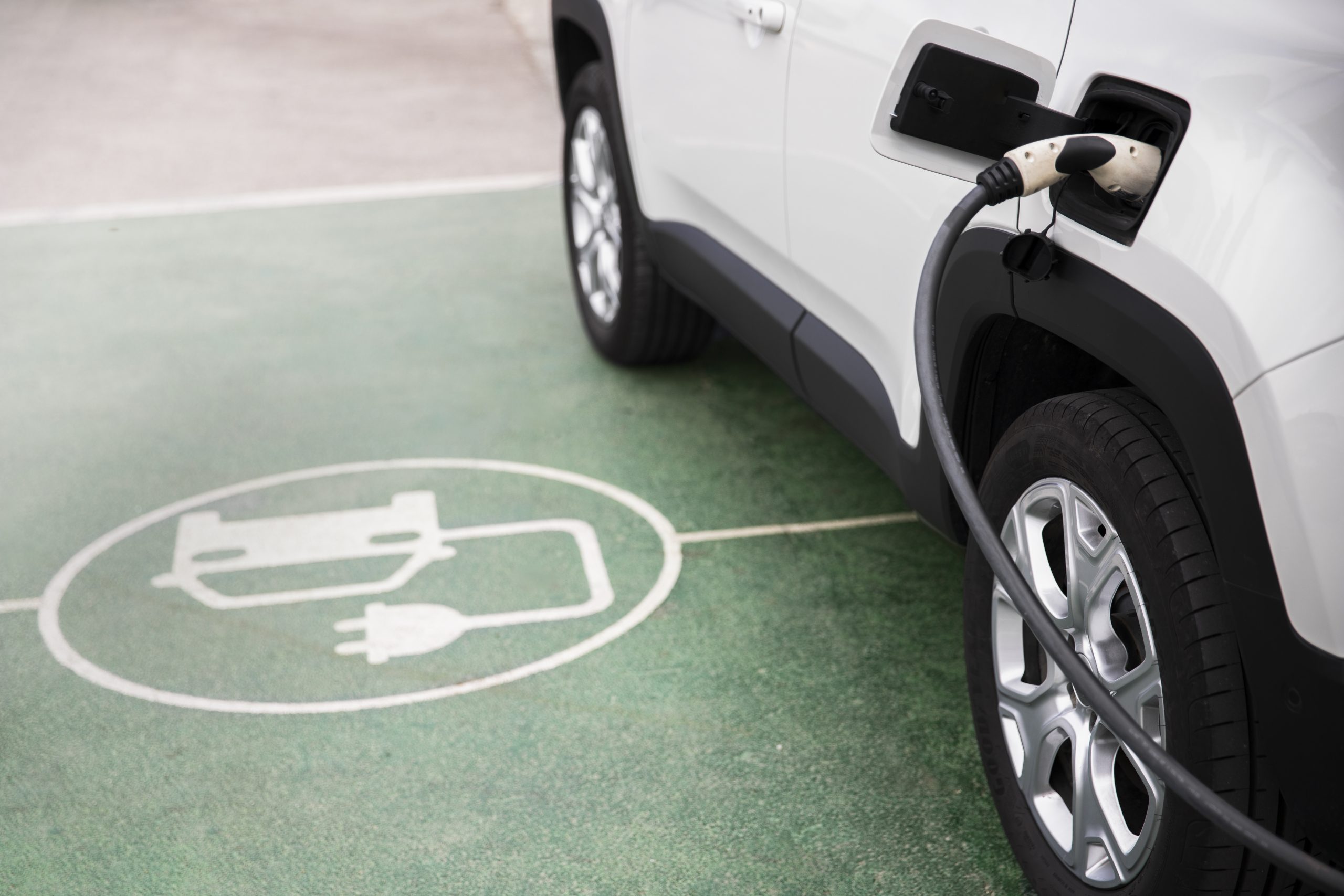This website uses cookies so that we can provide you with the best user experience possible. Cookie information is stored in your browser and performs functions such as recognising you when you return to our website and helping our team to understand which sections of the website you find most interesting and useful.
Three letters that will shake up Europe’s auto industry

Europe needs an automotive strategy that is good for consumers, the climate and for industry. That’s why tariffs – if they come – should be complemented by an additional push on electrification, especially in the company car segment. BYD, those three letters that will become so familiar to Europeans this summer, stands for ‘Build Your Dreams’. Europe’s carmakers and politicians need to act now to stop it from Breaking (Y)our Dreams.
In late February, a ship sailed into Bremerhaven in northern Germany carrying a message for Europe. The three giant letters – BYD – on its hull should be a wakeup call for Europe’s auto industry and policy makers.
When it left the Port of Shenzhen, the BYD Explorer No.1 carried thousands of ‘Made in China’ battery electric cars destined for the European market. If its arrival in the heartland of Das Auto isn’t ominous enough for Europe’s legacy car makers, in 2023 BYD dethroned Tesla as the world’s biggest Electric Vehicles (EV) seller. It shows no sign of being overtaken any time soon.
BYD may be almost unknown to most Europeans, but the Explorer No.1 is the tip of the iceberg. In a hugely symbolic move, BYD has become the lead sponsor of EURO 2024, the European football championship, hosted by Germany. For a whole month this summer those three letters will be seen in stadiums across Germany and in households across Europe.
BYD, just like other Chinese and US manufacturers such as Rivian, Lucid Motors and Nio, is a force for good: increasing consumer choice, bringing down EV prices, and forcing Europe’s legacy carmakers to move further and faster in the transition to zero-emission vehicles.

Do laggards deserve protection?
There is no question that Chinese industry is ahead of Europe’s in terms of costs, battery technology and supply chain preparedness. European automotive giants were too slow to transition and too arrogant to acknowledge they were lagging behind. Now they are playing catch-up. On top, their over-reliance on premium large SUV models is stalling the electric car mass market, opening the door to cheaper compact Chinese models.
The European Commission is investigating tariffs on cars made in China. It is now rumoured that tariffs could come as early as June and might increase import costs to 25% or more. There are good geopolitical and economic arguments for tariffs, but on their own they could be bad for consumers, the climate and ultimately for our industry too.
The truth is that in the short run European consumers stand to gain from overcapacity and subsidies in China, just like we all benefit from cheap Chinese solar power. The more EVs we put on the road in Europe, the better for the climate.
However, consumers may be left with less choice in the long run, as Chinese and American giants gain huge market power. We should also recognise the risks associated with Chinese (or American) EVs – including the cathodes or cells essential to powering them – flooding the European market. It could severely disrupt European industry and could put thousands of existing and future jobs on the line. The political and economic impacts of this could be disastrous. At a time when extremist parties are projected to make electoral gains we should take this seriously.
Bringing production home
We believe that encouraging Chinese and US carmakers to localise their production in Europe is a reasonable goal. But trying to protect legacy laggards from competition is pointless unless we simultaneously force those same legacy carmakers to accelerate on EVs. The worst outcome would be for the Commission to impose tariffs and for legacy carmakers to use that as an excuse to slow down their EV plans. In two to three years’ time BYD will have car plants in Europe. If legacy carmakers haven’t caught up by then, they’re toast.
That’s where the EU’s corporate fleets initiative comes in. Company cars are Europe’s secret weapon in the EV race. My native Belgium is transitioning its giant company car market to 100% electric by 2026. Legacy carmakers like BMW and VW are doing just fine in that transition. A Europe wide mandate would create huge and stable demand for made in Europe EVs. Those vehicles would enter the second hand market three or four years later.
Tariffs would ensure that Chinese carmakers would not be able to ship their overcapacity to the EU company car market, at least until BYD has built manufacturing plants in Europe. Combined with a strategy to boost European supply chains and access to responsibly sourced minerals, this would bring EU legacy carmakers back in the race.
***
William Todts, Executive Director of Transport & Environment


